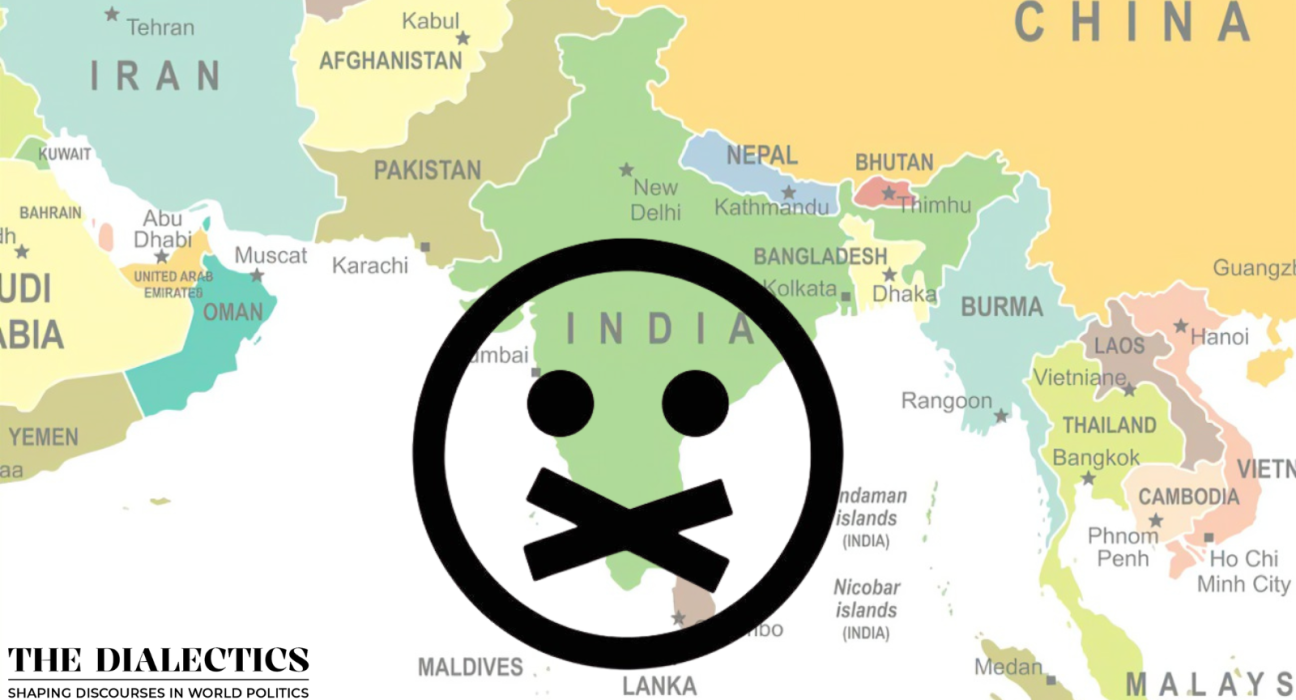The Pahalgam terror attack and the ensuing events that followed was a critically volatile time in South Asia. Two of the world’s nuclear armed powers, and the largest regional players were at each other’s throats. Escalations, missile strikes, cross border shelling created a crisis that could have galvanised into a conventional war. Considering the magnitude of the events and the subsequent tensions, the responses from the rest of south Asian nations were at best muted or tempered. Why that was the case and what that means for India’s neighborhood diplomacy becomes imperative to analyse.
Strategic Silences: How South Asia Reacted—or did not—to Pahalgam
As tensions rose between India and Pakistan the other South Asian nations seemed to walk the absolute tightrope when it came to their respective positions on the rapidly evolving situation. While almost all nations in the region condemned the terrible act of terrorism that was perpetrated, when it came to the Indian response however, the response ranged from absolute silence to calls for a nuanced peace. Bangladesh for instance only commented that it was observing the situation closely and hoped for peace and the conflict to be diffused. Its statement being extremely diplomatic which was expected considering the recent detente with Pakistan. Sri Lanka condemned the Pahalgam attack and also posed a firm statement that it will not allow any country to use its territory against the other and also emphasised its non-aligned stance in Indian Ocean geopolitical conflicts. It neither mentioned Pakistan nor commented on the validity of India’s response to the attacks by way of Operation Sindoor.
Bhutan maintained a principled silence beyond the initial condemnation of the attack. Afghanistan made no available public statement but the Indian Minister of External Affairs thanked the Afghan foreign minister Malawi Amir Khan Muttaqi for his words of solidarity on Pahalgam. Nepal came out with the generic condemnation of the Pahalgam attacks and also called for restraint on both parties when the India-Pakistan standoff heated up. Maldives condemned the attacks but expressed no opinion on India’s response or referenced Pakistan.
What does this situation imply?
The fact of the matter remains that South Asia, consisting of India’s immediate neighborhood, played the balancing act and they played it well. Most of South Asia condemned the attacks as grievous acts of terror but none went deeper into the issue. Pakistani state support and sponsorship of terrorism is an established and evidence-based claim. It has been corroborated by the international community and even Pakistan themselves. It has been the case for decades and has claimed countless innocent lives in India. Pahalgam was the repetition of another such incident. It was executed by militants who had the backing of the Pakistani state and military. Pakistan’s strategy of using terror as a means of state policy is no longer in question or under doubt.
Nonetheless, not a single South Asian neighbor came out by India’s stead and called a spade a spade. Not one nation explicitly or implicitly condemned the Pakistani state machinery’s role in supporting and launching acts of terror. While openly endorsing India’s punitive military response might be far-fetched and thus calls for peace and de-escalation are quite standard; a public critique of Pakistan’s aid and abetment of terror ecosystems was vital in this scenario. However, as the facts remain nothing of that nature came from any nation in the region.
None of India’s closest neighbors have supported or buttressed India’s valid stance on Pakistani support to terrorist outfits and their nefarious activities against Indian targets. This shows a clear and concerning lack of diplomatic capital on India’s part. South Asia’s muted response delineates the fact that India has failed to articulate its stand clearly amongst its closest regional partners on significant issues like terrorism. India has been clamoring against state sponsored terrorism for over 25 years at this point of time, it has sought to mobilize international support, multilateral engagements in international fora like the UN with varying magnitudes of success. But the hard and cold truth remains that its outreach has failed in its immediate neighborhood.
Implications for India’s neighborhood policy
A definitive lack of convergence when it comes to condemning acts of state sponsored terrorism in explicit terms shows that India’s neighborhood policy has serious deficiencies. While taking absolute sides in a scenario as emerged after Pahalgam, with Operation Sindoor is not always conducive to peace and regional stability, calling out Pakistan on its intrinsic support to terrorists can be considered a bare minimum. Not one single government statement in the region mentioned Pakistan’s policy of harbouring terrorists or censured it. The interesting fact being that these nations were not doing so out of any particular diplomatic capital or influence that Pakistan has, but instead for the Chinese influence in the region.
India’s neighborhood first policy aimed to galvanise its relations in south Asia, but the recent events show its gaping fallacies and limited impact. With China outpacing Indian sway in the region, it raises serious consternations about India’s regional position even after being the largest, most powerful and a geopolitical anchor of the south Asian region. However, only China cannot be held responsible for this apparent apathy towards India’s valid position in the region. Nepal, Bangladesh, Maldives, Afghanistan enjoy virtually little to no economic or deep bilateral ties or interests with Pakistan. There is also no significant involvement in SAARC where their aims can be intertwined and lead to these nations considering their options strategically before openly criticizing Pakistan. In praxis, India has come to their aid in thick and thin, during both natural and economic disasters, but still the calculated response persists.
In fact, calling out Pakistan at its fouls will only work towards them getting more reciprocal sops from India, and to be equally matched by China to balance out the influence. It would buy them significant political goodwill from New Delhi. Either way it is practically a win-win situation for these nations, as they get coaxed by both major powers, and also take a principled stand on the real problem of state sponsored terrorism. However, despite this they do not attest to India’s position, which speaks volumes as to how deep the distrust and the lack of India’s diplomatic efforts go.
What Next?
India’s neighborhood policy is in deep trouble. If it cannot get its immediate bordering states to agree on a factual and hard evidence-based claim that the Pakistani state-political-military establishment bolsters terrorism then it needs a serious introspection of its regional strategy. Regional alignment is crucial to India’s envisaged aims of being a “Vishwaguru.” South Asia is India’s turf, but there is gross neglect when it comes to Indian strategy in the region. New Delhi needs to buckle up and be proactive in its game plan for south Asia or risk losing vital heft to extra regional powers, particularly China, who have already made substantive forays. The Pahalgam attacks and the ensuing standoff paired with the muted regional response must act as a wakeup call to reassess and reinvigorate New Delhi’s neighborhood policy. India’s neighborhood is central to broader Indian interests and must be accorded commensurate heed.





